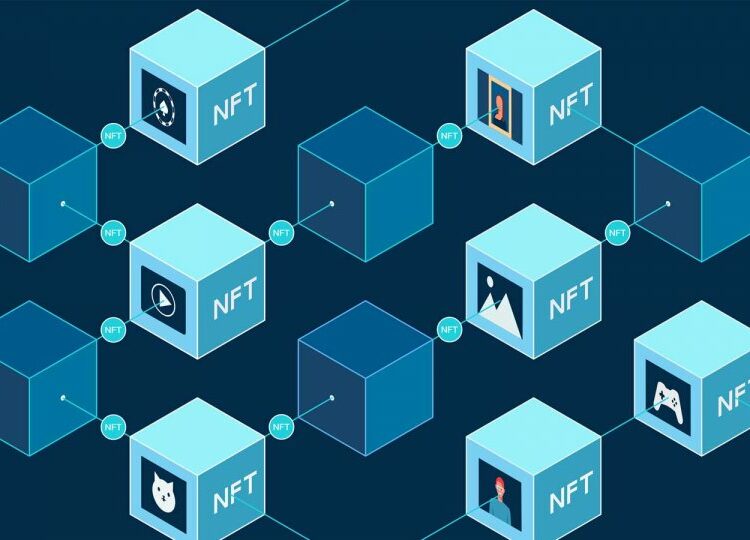The traditional image of the nurse as a bedside caregiver is evolving. Master’s degree nursing programs are now preparing graduates for a wider range of roles, including nurse educators, researchers, and administrators. This shift reflects the growing need for nurses to contribute to the larger healthcare system, not just individual patient care.
Toc
Why Earn a Master’s Degree in Nursing?

Pursuing a master’s degree in nursing programs offers a multitude of benefits for registered nurses. One of the most significant advantages is the potential for increased earning power. The Bureau of Labor Statistics reports that the median annual salary for nurses holding a master’s degree is substantially higher than that of their counterparts with a bachelor’s degree. For instance, nurse practitioners, who often complete MSN programs, earn a median salary of $126,260 annually. For example, a 2023 study by the American Association of Nurse Practitioners found that NPs who work in urban areas often earn higher salaries than those in rural areas.
Moreover, obtaining a master’s degree in nursing programs unlocks various career advancement opportunities. With an MSN, nurses can step into leadership positions such as Nurse Manager, Director of Nursing, or Chief Nursing Officer, allowing them to influence healthcare delivery on a larger scale. For instance, a nurse with an MSN may become a Nurse Manager overseeing a specific unit, such as the Emergency Department, or they might advance to a Director of Nursing role, responsible for the overall nursing care within a hospital.
In addition to financial gains, these nursing master’s degree programs equip nurses with advanced skills and knowledge. Graduates develop expertise in critical areas such as clinical practice, healthcare policy, research methodologies, and educational techniques. For example, an MSN program in Family Nurse Practitioner prepares graduates to manage common illnesses, provide preventative care, and offer counseling and health education to patients of all ages. This enhanced skill set enables nurses to take on greater responsibilities and make independent clinical decisions, ultimately leading to more comprehensive patient care.
As healthcare systems grapple with increasing complexity, the demand for nurses with advanced education is surging, creating a robust job market for MSN-prepared professionals. The Bureau of Labor Statistics projects a staggering 45% growth in employment for nurse practitioners from 2021 to 2031, significantly outpacing the average for all occupations. This demand is further fueled by the rise of telehealth and virtual care, which require nurses with specialized skills in technology-assisted patient care and remote monitoring.
Types of Master Degree Nursing Programs

When considering master degree nursing programs, it’s essential to explore the various options available. Here’s a closer look at the most popular types of MSN programs:
Advanced Practice Registered Nurse (APRN) Programs
Nurse Practitioner (NP) Programs:
Nurse practitioner programs prepare RNs to function as advanced practice registered nurses specializing in areas such as family, pediatric, or adult-gerontology care. NPs have the authority to independently assess, diagnose, treat, and prescribe medications for patients. The median salary for nurse practitioners is approximately $126,260 per year.
Clinical Nurse Specialist (CNS) Programs:
CNS programs focus on enhancing patient safety, conducting research, and implementing evidence-based practices. Clinical nurse specialists serve as clinical experts in specific areas, collaborating with healthcare teams to improve patient outcomes. This trend is reflected in many MSN programs, which now incorporate coursework and clinical experiences that emphasize collaboration with physicians, pharmacists, social workers, and other healthcare professionals. The average salary for clinical nurse specialists is around $94,545 annually.
Certified Registered Nurse Anesthetist (CRNA) Programs:
CRNA programs offer specialized training for nurses to administer anesthesia to patients before, during, and after surgical procedures. CRNAs work closely with anesthesiologists and surgeons to ensure patient safety and comfort. The median salary for CRNAs is approximately $152,717 per year.
Certified Nurse Midwife (CNM) Programs:
CNM programs educate nurses on providing comprehensive care for women throughout pregnancy, labor, delivery, and the postpartum period. Certified nurse-midwives offer complete pre- and postnatal care, along with a wide range of women’s health services. The median salary for certified nurse-midwives is about $129,650 annually.
3. https://toprunracing.vn/mmoga-online-associate-degree-programs-your-path-to-career-advancement
5. https://toprunracing.vn/mmoga-public-health-degree-programs-your-path-to-a-meaningful-career
Non-Clinical MSN Programs
Nurse Educator Programs:
Nurse educator programs prepare RNs to teach future nursing professionals in academic and healthcare settings. Graduates develop expertise in curriculum design, instructional methods, and educational assessment. The median salary for nurse educators is around $80,780 per year.
Nursing Informatics Programs:
Nursing informatics programs emphasize the integration of technology, data, and nursing knowledge. Informatics nurses bridge the gap between healthcare and information systems, consulting on technology implementation and analyzing data to enhance patient outcomes. The average salary for nursing informatics professionals is approximately $84,433 annually.
Nurse Administrator/Executive Programs:
These programs equip RNs with the leadership and management skills necessary for overseeing nursing staff and healthcare operations. Nurse administrators can serve as unit managers, directors of nursing, or chief nursing officers. The median salary for nurse administrators is about $110,680 per year.
Nurse Researcher Programs:
Nurse researcher programs train RNs to conduct, evaluate, and apply research to advance nursing practice. These professionals play a vital role in shaping the future of nursing through their contributions to evidence-based practice. The average salary for nurse researchers is approximately $81,500 annually.
Choosing the Right Master Degree Nursing Program

Selecting the right master degree nursing program is crucial for aligning your educational journey with your career aspirations. Here are some key considerations:
Career Goals
Reflect on the type of nursing role you envision for yourself and the impact you wish to make in healthcare. Whether you aim to work in advanced clinical practice, education, research, or leadership, clearly identifying your goals will guide your path and help you choose the right program. Consider how each role aligns with your personal values and aspirations, as well as the difference you want to bring to the nursing profession.
Program Curriculum
Thoroughly evaluate the curriculum to ensure it encompasses essential knowledge and skills for your chosen specialty. Look for programs that offer a balance of comprehensive courses and practical experiences, such as clinical rotations or simulation labs, to prepare you for real-world challenges. Consider whether the program includes opportunities for specialization or electives that align with your interests.
Faculty Expertise
Research the faculty’s qualifications and experience in depth. Engaging instructors who are active in research or clinical practice can significantly enrich your educational experience, providing insights into the latest trends and innovations in the field. Look for faculty members with a track record of publications, leadership roles in professional organizations, or awards for excellence in teaching.
Program Format
Carefully consider the format that best suits your lifestyle and learning preferences. Online MSN degree programs offer flexibility, allowing you to learn at your own pace while maintaining work and personal commitments. Many online nursing master’s degree programs provide the same quality of education as traditional in-person programs, complete with interactive elements like virtual discussions and digital collaborations with peers.
Accreditation
Ensure the program is accredited by reputable organizations, such as the Commission on Collegiate Nursing Education (CCNE) or the Accreditation Commission for Education in Nursing (ACEN). Accreditation is a mark of quality that demonstrates a commitment to maintaining high educational standards and ensures that your degree will be recognized by employers and licensure boards.
Cost and Financial Aid
Thoroughly evaluate the program’s cost and explore available financial aid options, including scholarships, grants, and employer tuition reimbursement programs. Some online MSN programs can be completed in as little as 14 months for under $15,000, making them an attractive option for many prospective students. However, some nurses may be hesitant to pursue an MSN due to the significant financial investment required. It’s important to consider the potential return on investment in terms of increased earning potential, career advancement opportunities, and the personal fulfillment that can come from advancing your education and expertise in the field of nursing.
3. https://toprunracing.vn/mmoga-online-associate-degree-programs-your-path-to-career-advancement
4. https://toprunracing.vn/mmoga-public-health-degree-programs-your-path-to-a-meaningful-career
Tips for Success in Master Degree Nursing Programs

Embarking on your journey toward a master’s degree in nursing programs can be both rewarding and challenging. Here are some practical tips to ensure your success:
Master Time Management
Balancing academic responsibilities with personal life demands excellent time management skills. Create a structured schedule that prioritizes coursework, clinical hours, and personal commitments. Utilizing tools such as digital calendars and task managers can help keep track of deadlines and appointments, ensuring nothing slips through the cracks. Additionally, breaking larger tasks into manageable pieces can lessen feelings of overwhelm and boost productivity. It’s crucial to also allocate time for rest and self-care, as maintaining a healthy lifestyle can enhance your ability to focus and perform well in your studies.
Develop Effective Study Habits
To excel in a master’s degree nursing program, cultivating efficient study habits is essential. Identify your optimal learning style—whether it’s visual, auditory, or kinesthetic—and tailor your study sessions to match. Regularly attending study groups can provide additional perspectives and aid in understanding complex material. Practice active learning by summarizing information in your own words, using flashcards for critical terminology, and teaching concepts to peers. Additionally, create a conducive study environment, free from distractions, to maximize focus and retention. Consistent review and reinforcement of knowledge can aid in long-term retention and application in clinical settings.
Seek Support and Networking Opportunities
Building a strong support network can significantly contribute to your success. Engage with classmates, professors, and professionals in the field to exchange knowledge and experiences. Forming or joining study groups can offer collaborative learning opportunities and foster a sense of community. Don’t hesitate to seek guidance from academic advisors or mentors when faced with challenges. Networking within the healthcare industry can open doors for future career advancement, providing insights into various nursing roles and potential job opportunities. Embrace these connections as valuable resources throughout your academic and professional journey.
Utilize Resources and Technology
Leveraging the abundant resources and technology available can greatly enhance your learning experience in a master’s degree nursing program. Universities often offer academic resources such as libraries, online databases, and learning centers to support your research and study. Take advantage of these to access the latest research and evidence-based practices. In addition, familiarize yourself with technology tools that can aid in your studies, such as virtual simulations and learning management systems. These platforms can provide practical experiences and help bridge the gap between theoretical knowledge and real-world application. Staying updated on technological advancements in the nursing field can also provide a competitive edge in your future career.
Maintain Emotional Resilience and Well-Being
The demanding nature of nursing master’s programs requires emotional resilience and a commitment to well-being. Acknowledge and address stressors by developing coping strategies such as mindfulness, meditation, or physical exercise. It’s important to recognize signs of burnout early and seek support when needed, whether through counseling services or support groups. Prioritizing mental health fosters a stable environment for both academic achievements and personal growth. Remember to celebrate small victories along the way, as recognition of your progress can boost morale and motivate you to overcome challenges. Cultivating resilience not only benefits your educational journey but also prepares you for the diverse and evolving nature of the nursing profession.
Frequently Asked Questions
Q: What are the typical admission requirements for MSN programs?
A: Most master’s degree nursing programs require a bachelor’s degree in nursing (BSN), a valid registered nurse (RN) license, and a minimum GPA, usually around 3.0. Some programs may also request letters of recommendation, a personal statement, or relevant work experience.
Q: How long does it take to complete an MSN program?
A: The duration of an MSN program varies, but most full-time programs can be completed in 2-3 years. Part-time or online nursing master degree programs may take longer, depending on the student’s pace and course load.
Q: Are online MSN programs as good as in-person programs?
A: Yes, online MSN programs can be just as high-quality as traditional in-person programs, particularly if they are accredited by reputable organizations like the CCNE. It’s important to research the program’s faculty, curriculum, and student outcomes.
Q: What financial aid options are available for MSN programs?
A: Financial aid options include scholarships, grants, loans, and employer tuition reimbursement programs. Many institutions also offer payment plans to help manage costs.
Q: What are some career opportunities for nurses with an MSN?
A: Career opportunities for MSN-prepared nurses include advanced practice roles such as nurse practitioners, clinical nurse specialists, certified registered nurse anesthetists, and certified nurse-midwives, as well as positions in education, administration, and research. It’s important to note that not all nurses seek leadership or advanced practice roles. Some nurses may prefer to remain at the bedside, focusing on direct patient care. An MSN can still be beneficial for these nurses by providing them with a deeper understanding of healthcare policy, research, and other areas that enhance their practice.
Conclusion
Earning a master’s degree in nursing can be a transformative step in your nursing career, opening doors to advanced practice, leadership, and specialized roles. By understanding the different types of master degree nursing programs and the career paths they offer, you can make informed decisions about your future.
Whether your interest lies in becoming a nurse practitioner, a nurse educator, or a nursing leader, there are numerous opportunities to explore with an MSN. Take the time to research program options, consider your personal and professional priorities, and develop a plan for success. With the right master’s degree in nursing programs, you can unlock your full potential and make a lasting impact on the healthcare industry. Start your journey towards a rewarding and impactful career in nursing by exploring master’s degree programs today! Visit our website to learn more about accredited MSN programs and find the perfect fit for your goals.











